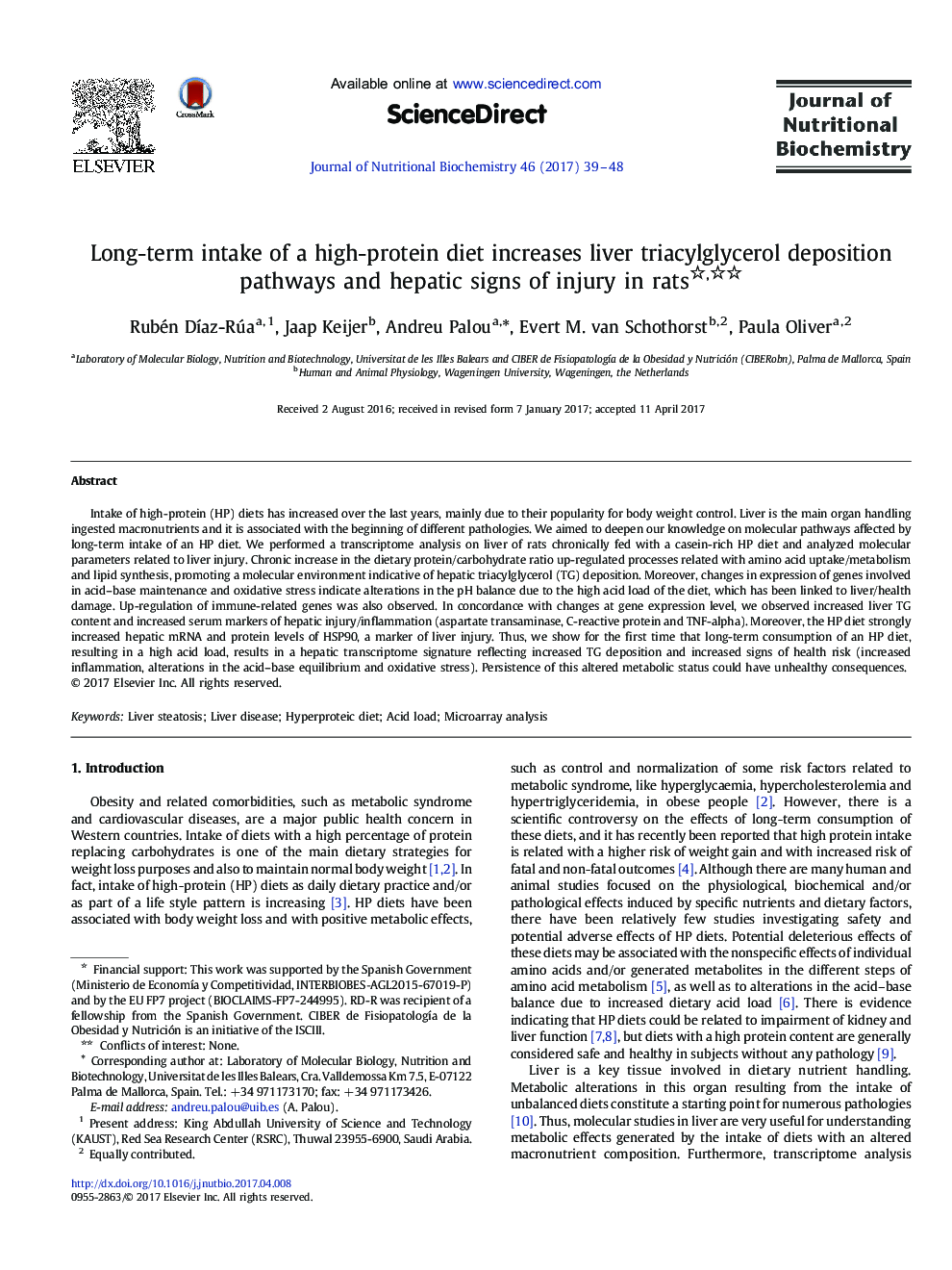| Article ID | Journal | Published Year | Pages | File Type |
|---|---|---|---|---|
| 5512963 | The Journal of Nutritional Biochemistry | 2017 | 10 Pages |
Abstract
Intake of high-protein (HP) diets has increased over the last years, mainly due to their popularity for body weight control. Liver is the main organ handling ingested macronutrients and it is associated with the beginning of different pathologies. We aimed to deepen our knowledge on molecular pathways affected by long-term intake of an HP diet. We performed a transcriptome analysis on liver of rats chronically fed with a casein-rich HP diet and analyzed molecular parameters related to liver injury. Chronic increase in the dietary protein/carbohydrate ratio up-regulated processes related with amino acid uptake/metabolism and lipid synthesis, promoting a molecular environment indicative of hepatic triacylglycerol (TG) deposition. Moreover, changes in expression of genes involved in acid-base maintenance and oxidative stress indicate alterations in the pH balance due to the high acid load of the diet, which has been linked to liver/health damage. Up-regulation of immune-related genes was also observed. In concordance with changes at gene expression level, we observed increased liver TG content and increased serum markers of hepatic injury/inflammation (aspartate transaminase, C-reactive protein and TNF-alpha). Moreover, the HP diet strongly increased hepatic mRNA and protein levels of HSP90, a marker of liver injury. Thus, we show for the first time that long-term consumption of an HP diet, resulting in a high acid load, results in a hepatic transcriptome signature reflecting increased TG deposition and increased signs of health risk (increased inflammation, alterations in the acid-base equilibrium and oxidative stress). Persistence of this altered metabolic status could have unhealthy consequences.
Related Topics
Life Sciences
Biochemistry, Genetics and Molecular Biology
Biochemistry
Authors
Rubén DÃaz-Rúa, Jaap Keijer, Andreu Palou, Evert M. van Schothorst, Paula Oliver,
